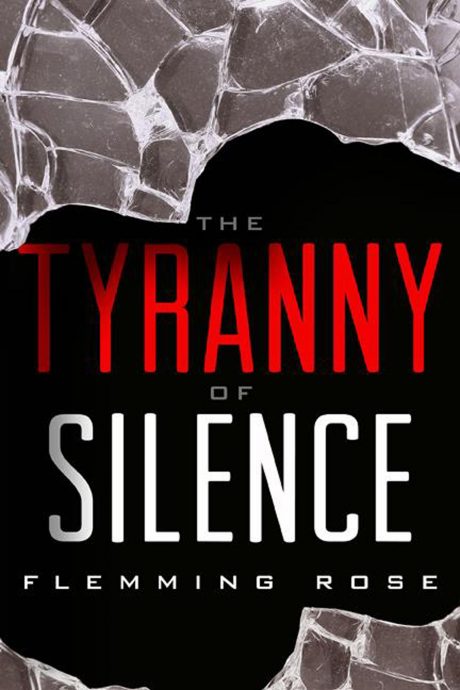The Supreme Court will soon have to decide whether Twitter is more like a marching band or like a public shopping mall.
Flemming Rose on the Aftermath of the Mohammed Cartoon Crisis
This next podcast is with the Danish journalist Flemming Rose, foreign news editor at Jyllands-Posten, on the controversy he ignited in 2005 when he published cartoons satirizing the prophet Mohammed. His new book, The Tyranny of Silence, offers his reflections on the conflagration that ensued, including a jihadist’s attempt to murder one of the cartoonists with an axe. Rose received the protection of Danish security services after threats were made on his life. Not bowing to intimidation, Rose has spent the last decade highlighting the dangers of foregoing a commitment to freedom of speech. Our interview delves into these experiences and also the lessons that Rose believes are a warning for individual and political liberties in Europe.
He commissioned the cartoons, he tells Liberty Law Talk, because he was taken aback by the self-censorship in Denmark, and throughout Europe, on the subject of Islam and its status in European democracies. And this self-censorship now frequently melds with legal prohibitions in certain European countries that vaguely hover over “incorrect” speech. The effect, Rose notes, is to drive controversial ideas or arguments out of the public sphere.
One surprise stemming from the Muhammad cartoons crisis, Rose observes, was the European elites’ retreat from defending free speech in favor of granting group rights and preferences. We discuss the new model of interaction exercised by political leaders in Europe, which is to deal with individuals within minority groups solely as members of those groups, religions, or ethnicities rather than as individuals. The consequences, Rose reports, are that “leaders” of Islamic communities are the only ones empowered to speak for Muslims, and they have great latitude to govern their communities separately, in many cases, from the legal and cultural norms of the country. On the basis of his interviews with young Muslim women in Copenhagen, Rose believes these women might be living with less freedom than they had in their (or their families’) countries of origin.
There is no doubt that Rose is a tremendous journalist who demonstrated his commitment to the basic truths of a free society. This interview is an opportunity to hear from someone who has ventured much in the defense of freedom.



